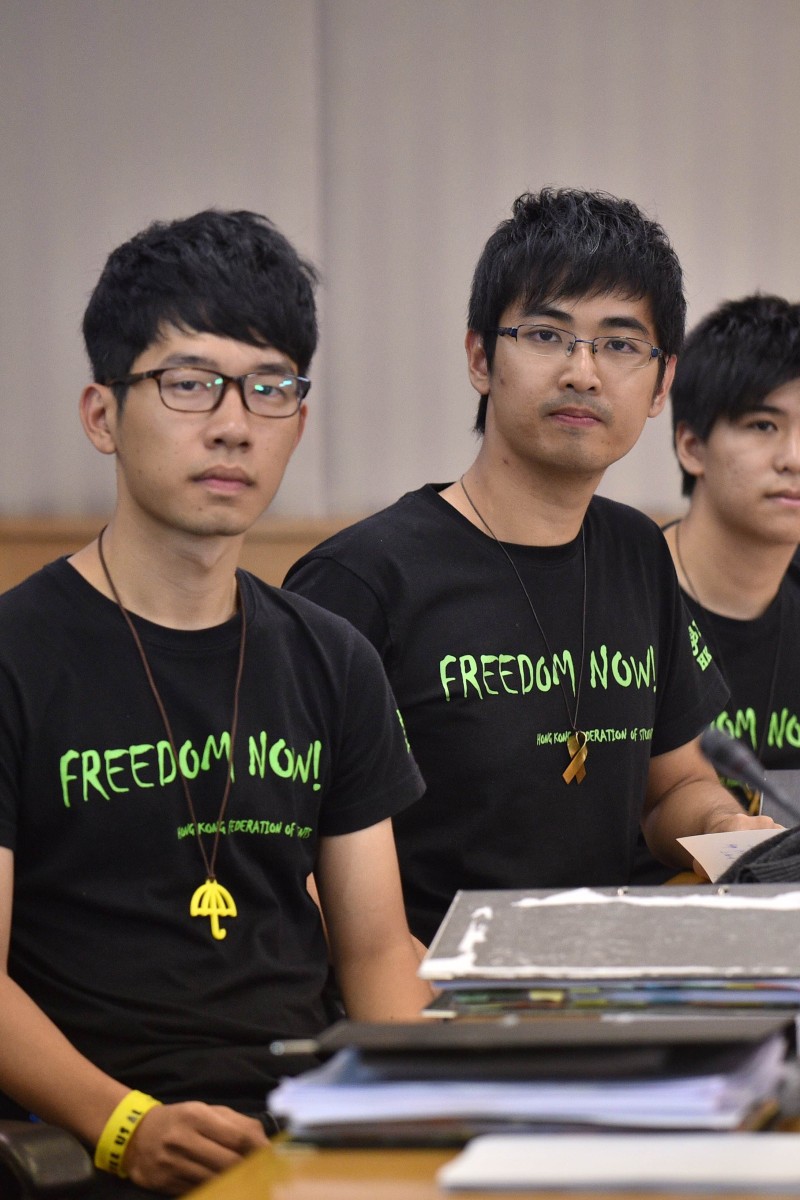 Hong Kong Federation of Students representatives (from left) Yvonne Leung, Nathan Law, Alex Chow, Lester Shum and Eason Chung.
Hong Kong Federation of Students representatives (from left) Yvonne Leung, Nathan Law, Alex Chow, Lester Shum and Eason Chung. Three Hong Kong student leaders plan to take their fight for greater democracy to Beijing on Saturday as frustration grows over the city government's inability to negotiate on electoral reforms.
Protesters have occupied some of Hong Kong’s most economically and politically important districts for more than six weeks, camping out in some of the world's most expensive real estate to demand free elections in 2017.
Hong Kong Federation of Students' (HKFS) leader Alex Chow Yong-kang said late on Thursday he planned to travel to Beijing with fellow activists Eason Chung Yiu-wah and Nathan Law Kwun-chung and they hoped to meet Premier Li Keqiang.
News of the trip is likely to unnerve Beijing, which has called the protests in Hong Kong illegal and there is no guarantee that the three would be allowed into the capital.
Some Hong Kong business people have called for the protests to end, saying they are undermining confidence in the free-wheeling capitalist hub and could threaten stability.
Local media said on Friday that police could start to clear the key protest sites on Monday or Tuesday.
China rules Hong Kong under a "one country, two systems" formula that gives the SAR a degree of autonomy and freedom not enjoyed on the mainland, with universal suffrage an eventual goal.
But Beijing said in August that only candidates screened by a nominating committee will be able to contest a full city-wide vote to choose the next chief executive in 2017.
